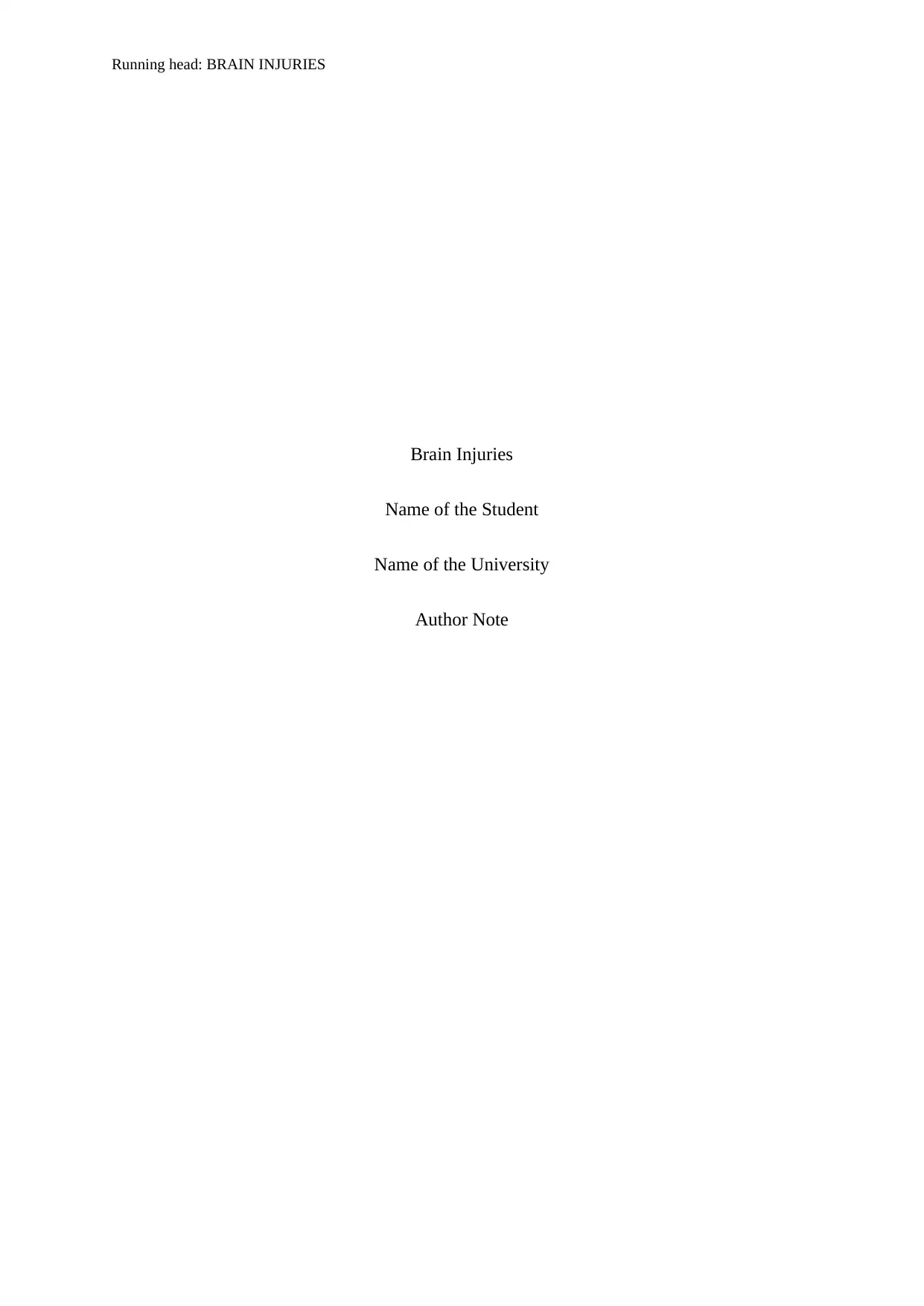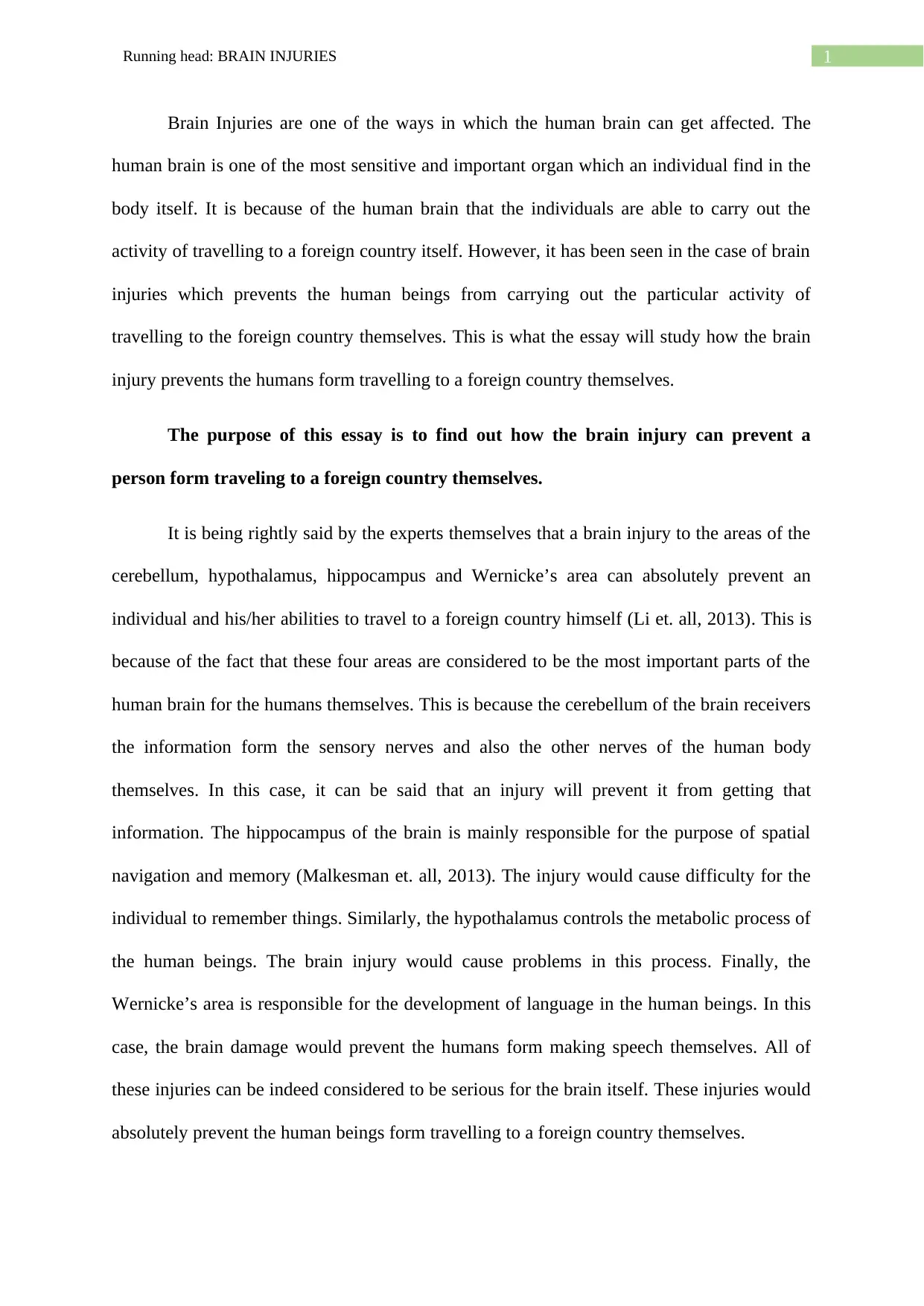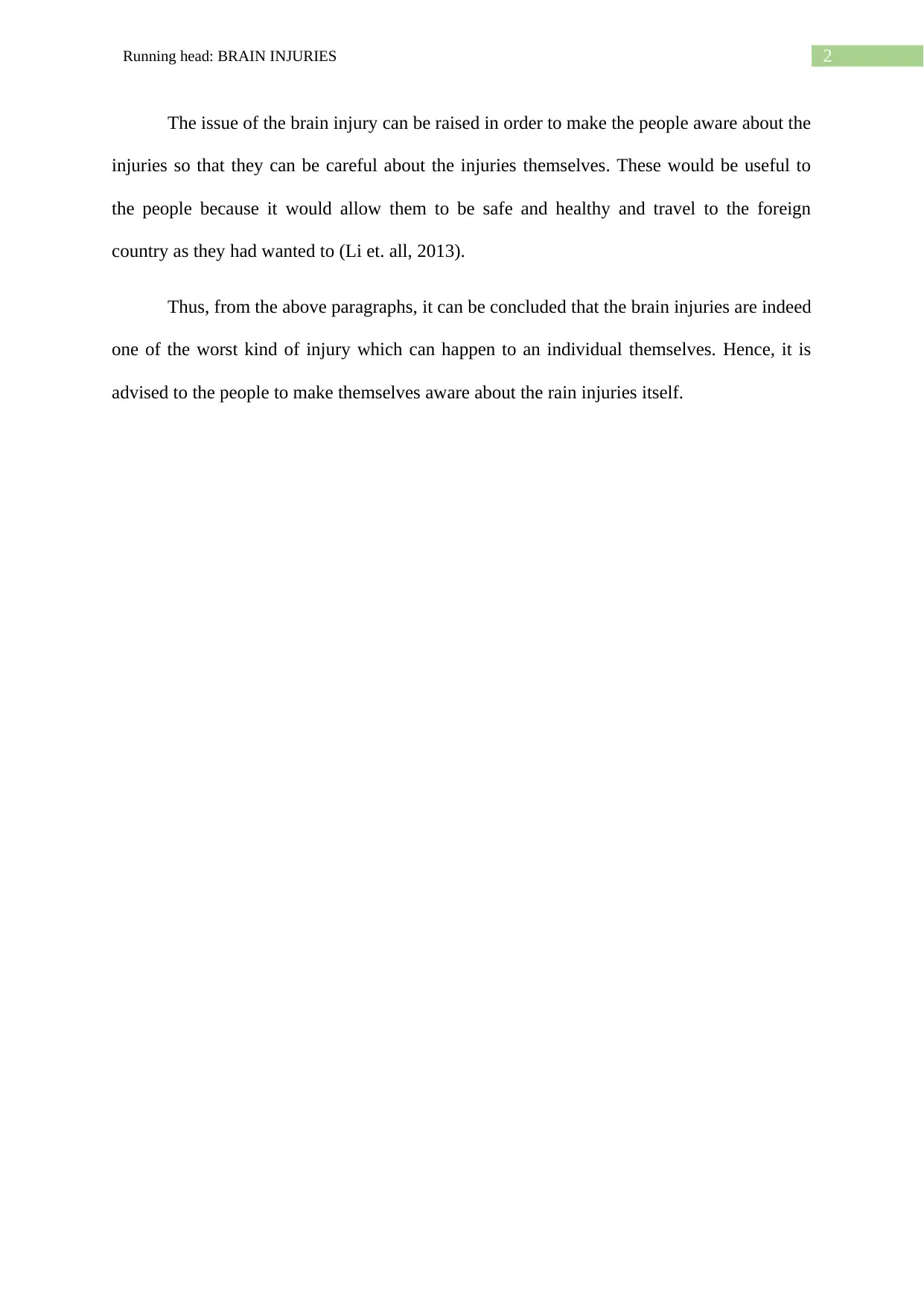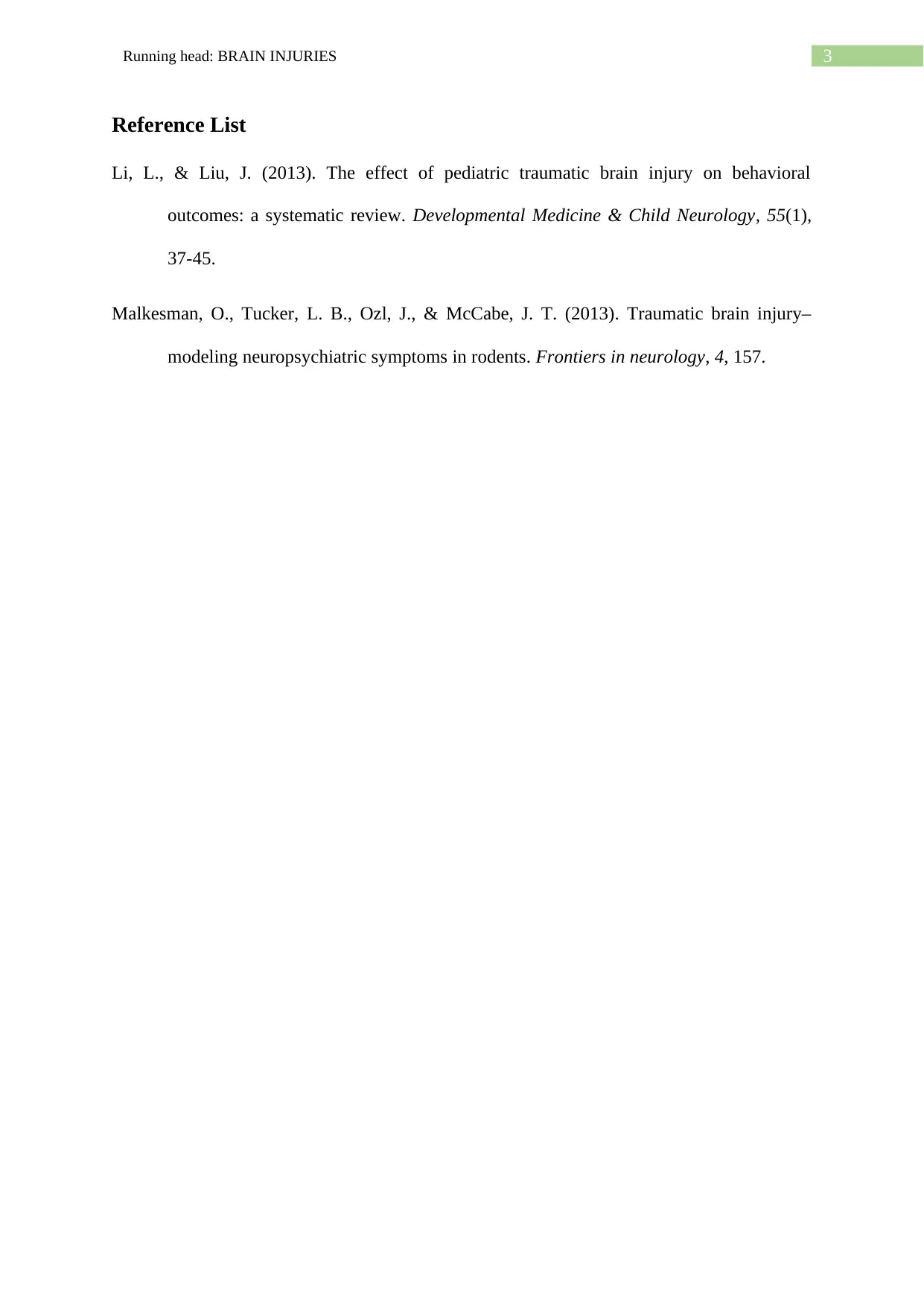The Effects of Brain Injuries on Travel and Cognitive Abilities
VerifiedAdded on 2022/11/13
|4
|618
|468
Essay
AI Summary
This essay explores the impact of brain injuries on cognitive functions and the ability to travel. It examines how damage to specific brain areas, including the cerebellum, hippocampus, hypothalamus, and Wernicke's area, can prevent individuals from traveling. The essay highlights the roles of these areas in sensory information processing, spatial navigation and memory, metabolic processes, and language development, respectively. It emphasizes the importance of understanding brain injuries and their consequences, advocating for awareness to promote health and safe travel. The essay also references supporting literature to validate the claims and analysis.
1 out of 4






![[object Object]](/_next/static/media/star-bottom.7253800d.svg)